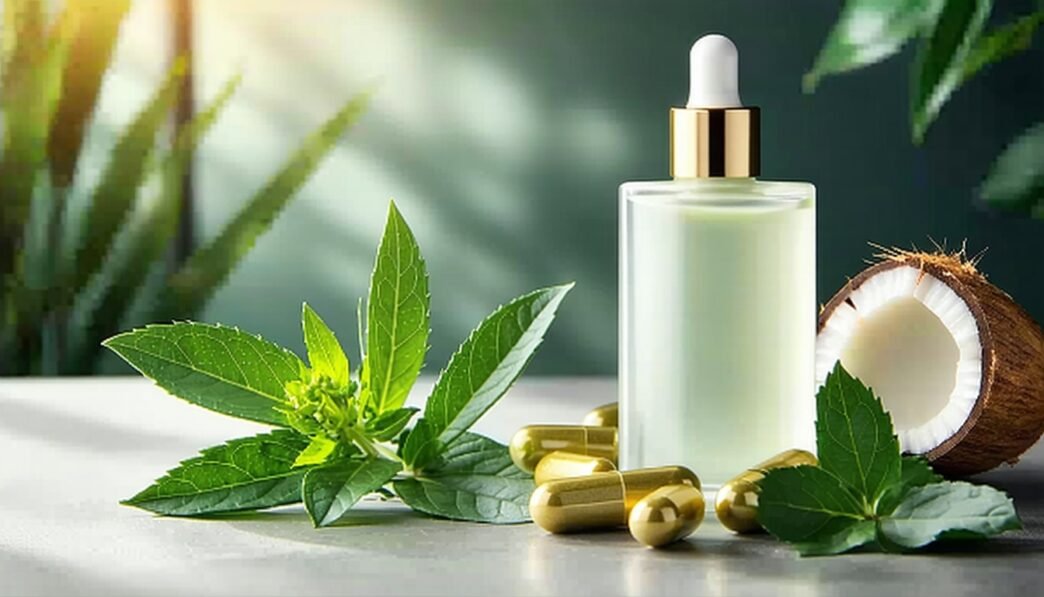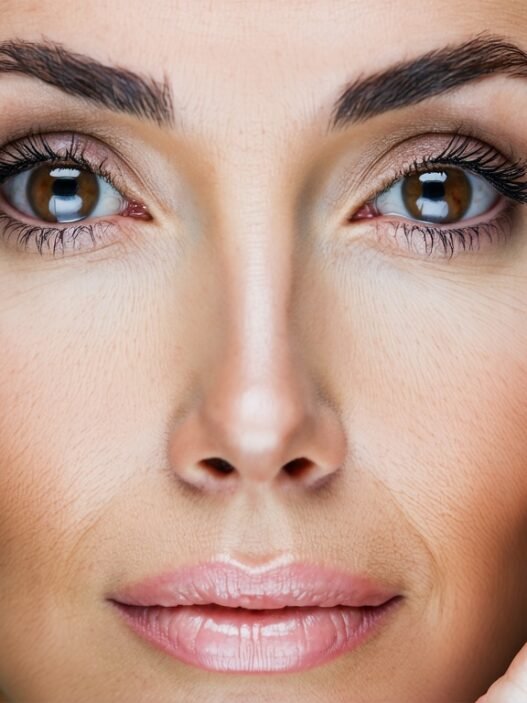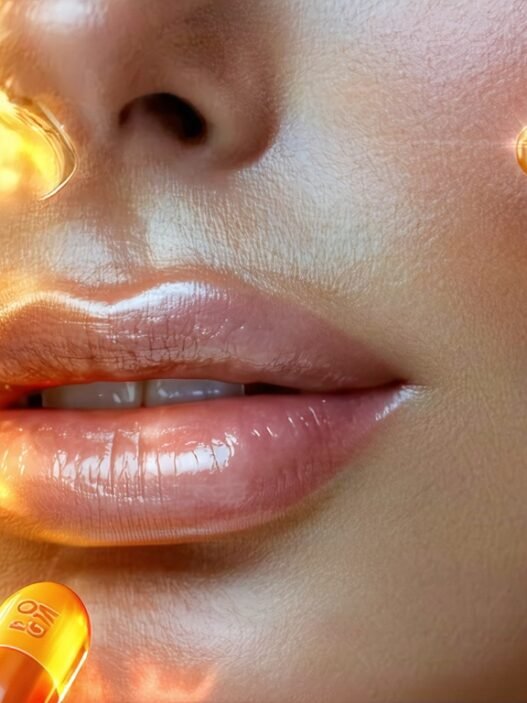Understanding CoQ10
Introduction to CoQ10
Coenzyme Q10, also known as CoQ10, is a naturally occurring antioxidant in the body that plays a significant role in cellular energy production (Dermstore). This compound is crucial for the growth and maintenance of cells. CoQ10 is predominantly found in the mitochondria, the powerhouse of the cells, where it aids in producing adenosine triphosphate (ATP), a key energy carrier.
CoQ10 levels can be impacted by various factors:
- Age: As individuals age, the natural production of CoQ10 declines.
- Health Conditions: Certain conditions, such as heart disease and neurodegenerative disorders, are associated with lower CoQ10 levels.
- Medications: Statins, commonly prescribed for lowering cholesterol, can reduce CoQ10 levels.
While CoQ10 is also available through certain foods like meat, fish, and nuts, dietary sources alone are often insufficient to significantly boost CoQ10 levels (Healthline).
Importance of CoQ10 Levels with Age
As people age, the body’s ability to produce CoQ10 decreases. This decline can have several implications for health and vitality. Lower levels of CoQ10 are linked to various conditions, including heart disease, type 2 diabetes, and neurodegenerative disorders.
For those concerned with aging and vitality, maintaining adequate CoQ10 levels is essential for several reasons:
- Antioxidant Protection: CoQ10 helps neutralize harmful free radicals, reducing oxidative stress and protecting the skin from damage.
- Energy Production: By supporting the production of ATP, CoQ10 ensures that cells have the energy they need for growth and repair.
- Supporting Heart Health: Research shows that CoQ10 supplementation can improve heart function and reduce the risk of heart-related complications.
For more information on the best CoQ10 supplements and their health benefits, visit the corresponding sections of our blog. Maintaining proper CoQ10 levels is particularly important in the context of skin health and anti-aging, as it plays a significant role in reducing the appearance of wrinkles and maintaining a youthful appearance. To delve deeper into the skin benefits, visit our guide on coq10 benefits for skin.
| Aspect | Impact of CoQ10 |
|---|---|
| Antioxidant Protection | Reduces oxidative stress |
| Energy Production | Supports cellular ATP synthesis |
| Heart Health | Improves heart function |
By understanding the role of CoQ10 and its importance with age, individuals can better appreciate its significance in maintaining vitality and combating the signs of aging. For more on natural sources and ways to maintain adequate levels, check out natural sources of coq10.
Health Benefits of CoQ10
Coenzyme Q10 (CoQ10) is a compound with numerous health benefits, which extend across various bodily functions and processes. Its role in skincare is particularly notable for those concerned with aging and vitality.
CoQ10 and Heart Health
CoQ10 has been extensively studied for its positive effects on cardiovascular health. It plays a crucial role in producing energy within the cells, specifically in the mitochondria, which is vital for heart muscle activity. Supplementing with CoQ10 can help improve blood flow, reduce oxidative stress, and enhance overall heart function. For a deeper dive, read about coq10 and heart health.
CoQ10 and Female Fertility
CoQ10 may support female fertility by maintaining egg quality and reversing age-related declines in both the quality and quantity of eggs. This is especially beneficial for women who are looking to conceive later in life. CoQ10’s antioxidant properties help protect the eggs from oxidative stress, improving their viability (Healthline).
| Benefit | Explanation |
|---|---|
| Egg Quality | Maintains and potentially reverses the age-related decline |
| Egg Quantity | Supports improved egg count in older women |
| Antioxidant Protection | Shields eggs from oxidative stress |
CoQ10 for Managing Migraines
CoQ10 can also be beneficial in managing migraines. It is thought to improve mitochondrial function in brain cells, which may reduce the severity, duration, and frequency of migraine episodes. This makes CoQ10 a viable supplement for adults suffering from chronic migraines (Healthline).
| Metric | Impact |
|---|---|
| Severity | Reduces the intensity of migraine pain |
| Duration | Decreases the length of migraine episodes |
| Frequency | Lowers the number of migraine occurrences |
CoQ10 for Skin Health
CoQ10 has significant benefits for skin health, particularly in anti-aging:
- Reduction of Oxidative Damage: CoQ10 helps protect the skin from oxidative stress caused by UV rays, minimizing the risk of premature aging.
- Decreased Wrinkle Depth: Clinical studies have shown that CoQ10 can reduce the appearance and depth of wrinkles, providing a more youthful skin texture.
- Antioxidant Protection: CoQ10 enhances the skin’s antioxidative status, helping to neutralize free radicals and protect against environmental damage.
For a comprehensive overview of how CoQ10 can benefit the skin, see our article on coq10 and skin health.
| Skin Benefit | Effect |
|---|---|
| UV Protection | Reduces oxidative damage from ultraviolet rays |
| Wrinkle Reduction | Decreases the depth and visibility of wrinkles |
| Antioxidant Status | Enhances skin’s ability to fight off free radicals |
Given these diverse health benefits, CoQ10 is a valuable addition to both general wellness and specific anti-aging skincare routines. To explore the best CoQ10 supplements, click here. For advice on integrating CoQ10 into your skincare regimen, visit our guide on coq10 skin care products.
CoQ10 in Skincare
Topical Benefits of CoQ10
CoQ10 (Coenzyme Q10) has emerged as a powerful ingredient in skincare for its numerous benefits, particularly for those concerned with aging. When applied topically, CoQ10 provides several advantages:
- Protection Against Oxidative Damage: CoQ10 reduces oxidative damage caused by UV rays, helping to protect the skin from environmental stressors (Healthline).
- Reduction of Wrinkles: It decreases the depth of wrinkles, contributing to a smoother and younger-looking complexion.
- Antioxidant Protection: CoQ10 functions as an antioxidant by stabilizing cellular membranes, protecting against lipid peroxidation, and regenerating vitamins C and E.
These benefits make CoQ10 a sought-after component in anti-aging skincare products. For more information on the benefits of CoQ10 for skin, visit our detailed article on coq10 benefits for skin.
Role of CoQ10 in Anti-aging Skincare
CoQ10 plays a pivotal role in maintaining youthful skin through several mechanisms that combat the visible signs of aging:
- Mitochondrial Function: Topical CoQ10 supplementation stabilizes mitochondrial function, which helps maintain cellular energy levels and supports skin vitality.
- Collagen Production: CoQ10 inhibits the expression of matrix metalloproteinase (MMP), which leads to decreased collagen degradation and stimulates the production of new collagen. This results in better skin firmness and elasticity (NCBI).
- Cellular Rejuvenation: CoQ10 improves cellular oxidative status and prevents cellular senescence, encouraging the proliferation of fibroblasts and enhancing the mRNA expression of collagen and elastin (NCBI).
The following table summarizes the key roles of CoQ10 in anti-aging skincare:
| Role | Benefits |
|---|---|
| Mitochondrial Function | Stabilizes cellular energy and vitality |
| Collagen Production | Reduces collagen degradation, stimulates new collagen |
| Cellular Rejuvenation | Prevents cellular aging, enhances skin elasticity |
To explore more about how CoQ10 can aid in achieving youthful skin, read our comprehensive guide on coq10 for youthful skin.
Integrating CoQ10 into your skincare routine can be highly beneficial in combating the signs of aging. For the best CoQ10 skincare products, visit our curated list of coq10 skin care products.
Mechanisms of CoQ10 in Skin Aging
Mitochondrial Function and CoQ10
CoQ10, also known as Coenzyme Q10, plays a crucial role in mitochondrial function. Mitochondria are the powerhouses of cells, producing the essential energy needed for cellular processes. With age, mitochondrial activity declines, leading to decreased energy production and increased oxidative stress. CoQ10 supplementation has been shown to stabilize mitochondrial activity, promoting cellular energy and reducing oxidative damage.
For more information on this process, visit our article on coq10 and mitochondrial function.
Antioxidant Properties of CoQ10
CoQ10 is a powerful antioxidant that helps combat free radicals, unstable molecules that can damage skin cells and accelerate aging. When applied topically, CoQ10 stabilizes cellular membranes, reduces lipid peroxidation, and regenerates oxidized vitamins C and E. This multifaceted approach ensures that the skin remains protected from environmental stressors like UV rays, supporting overall skin health and rejuvenation.
For a deeper dive, explore our content on coq10 antioxidant benefits.
Rejuvenation Processes in Skin Aging
CoQ10’s role in skin rejuvenation is supported by its ability to enhance the skin’s natural processes. Applying CoQ10 topically has been observed to improve skin moisture, reduce wrinkles, and enhance skin smoothness (Journal of Clinical and Aesthetic Dermatology). By supporting these rejuvenation processes, CoQ10 contributes to a more youthful and vibrant complexion.
For insights on how CoQ10 can transform your skincare routine, read about the coq10 benefits for skin.
| Mechanism | Benefit |
|---|---|
| Mitochondrial Function | Stabilizes cellular energy production |
| Antioxidant Properties | Reduces oxidative damage, rejuvenates vitamins C & E |
| Rejuvenation Processes | Enhances moisturization, reduces wrinkles and roughness |
The combined mechanisms of CoQ10—its support for mitochondrial function, antioxidative properties, and ability to rejuvenate skin processes—make it an invaluable component of anti-aging skincare. To explore more about how CoQ10 can benefit your skin, consider reading about coq10 and skin rejuvenation and coq10 and skin renewal.
Clinical Studies on CoQ10
Efficacy of CoQ10 Supplementation
Clinical studies have highlighted the benefits of CoQ10 for overall health, showing significant improvements in various areas, including heart health and skin health. CoQ10 supplementation helps to boost levels of this essential molecule, which naturally declines with age. Higher CoQ10 levels in the body contribute to increased energy production, reduced oxidative stress, and improved cellular function.
| Health Benefit | Study Outcome |
|---|---|
| Heart Health | Improved cardiac function and reduced oxidative damage (NCBI) |
| Skin Health | Enhanced skin hydration, reduced wrinkles, improved elasticity (JCAD) |
| Cellular Function | Increased proliferation of fibroblasts, mRNA expression of collagen, and elastin (PMC) |
The positive outcomes of these studies underscore the importance of CoQ10 supplementation for maintaining vitality and combating aging. For those interested in incorporating CoQ10 into their routine, exploring the best coq10 supplements can be beneficial.
Anti-aging Effects of CoQ10 Skincare Products
Topical application of CoQ10 in skincare products has shown remarkable anti-aging benefits. Clinical research has demonstrated that CoQ10 can improve the antioxidative status of the skin, enhance moisturization, reduce wrinkles, and improve skin roughness and elasticity.
| Benefit | Study Outcome |
|---|---|
| Antioxidative Status | Improved antioxidative status and reduced UVA-induced damage (NCBI) |
| Skin Moisturization | Increased hydration levels, reducing dryness (JCAD) |
| Wrinkle Reduction | Noticeable reduction in periorbital skin wrinkling (NCBI) |
| Skin Elasticity | Boosted skin firmness and elasticity, reversing age-related declines (PMC) |
These findings highlight the efficacy of CoQ10 in combating age-related skin changes. Skincare products containing CoQ10 can significantly enhance skin vitality and appearance. For a curated list of effective products, visit our page on coq10 skin care products.
Clinical studies also show that CoQ10 stabilizes cellular membranes, protects against lipid peroxidation, and regenerates oxidized vitamins C and E. These actions help to minimize damage from free radicals and support healthier, more youthful skin. For more insights into how CoQ10 can benefit your skin, see coq10 and skin elasticity and coq10 antioxidant benefits.
Research demonstrates that CoQ10 replenishment can reverse reductions in collagen and elastin, essential for maintaining skin structure and preventing sagging. Applying CoQ10 topicals strategically can mitigate visible signs of aging, making it a valuable ingredient in any anti-aging skincare regimen. For additional tips on incorporating CoQ10, explore coq10 for skin repair and coq10 for skin glow.
Considerations and Limitations
CoQ10 Supplementation Safety
CoQ10 supplements are generally considered safe for most individuals, with minimal side effects reported. The Mayo Clinic notes that mild side effects from CoQ10 supplementation can include digestive issues such as nausea, diarrhea, and loss of appetite.
However, certain groups should exercise caution. Pregnant and breastfeeding women should consult their healthcare provider before using CoQ10, as the safety of its use during these periods is not firmly established. For those interested, more information on the best CoQ10 supplements can also be helpful.
| Individuals | Safety Considerations |
|---|---|
| General Adults | Generally safe, mild digestive side effects possible |
| Pregnant/Breastfeeding Women | Consult healthcare provider |
| Individuals on Medication | Beware of interactions |
Interaction with Medications
CoQ10 can interact with several medications, which may influence its effectiveness or exacerbate side effects. According to the Mayo Clinic, individuals taking blood thinners like warfarin, chemotherapy drugs, or blood pressure medications should consult their healthcare provider before starting CoQ10 supplementation.
Specifically, those on blood thinners need to be cautious, as CoQ10 might reduce the medication’s efficacy, potentially leading to clotting issues. Chemotherapy patients should also consult their doctor since CoQ10 could potentially decrease the effectiveness of the treatment.
For more information on how CoQ10 can benefit skin health and vitality, explore our section on CoQ10 for skin health.
| Medication Type | Potential Interaction |
|---|---|
| Blood Thinners (e.g., warfarin) | May reduce medication efficacy |
| Blood Pressure Medications | Consult healthcare provider |
| Chemotherapy Drugs | May reduce treatment effectiveness |
For those looking for more details on specific CoQ10 benefits in skincare, consider reading about CoQ10 antioxidant benefits and its impacts on skin elasticity.




















